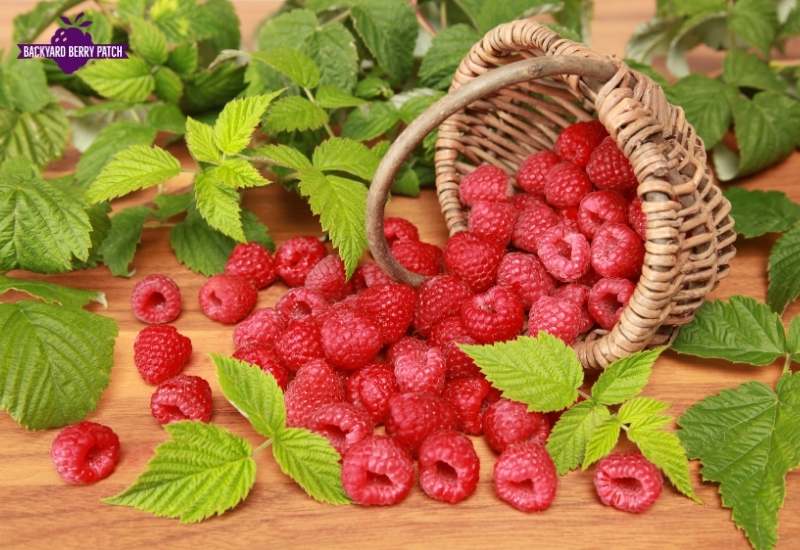Dreaming of juicy, homegrown raspberries in your Colorado garden? You’re in luck! Colorado’s climate can be great for growing certain raspberry varieties. With the right care, you can enjoy sweet, tangy berries straight from your backyard.
The best raspberries to grow in Colorado are red and yellow varieties like Heritage, Autumn Bliss, and Fall Gold. These types can handle Colorado’s unique weather and soil conditions. They produce tasty fruit that’s perfect for snacking, baking, or making jam.
Growing raspberries is fun and rewarding. You’ll get to watch your plants grow, flower, and fruit. Plus, you’ll have the satisfaction of eating berries you grew yourself.
Ready to start your raspberry adventure? Let’s explore the top varieties and tips for success in Colorado’s gardens.
Colorado Climate And Soil Overview
Growing raspberries in Colorado can be rewarding, but you need to understand the state’s unique climate and soil conditions.
Colorado’s climate is semi-arid with low humidity. You’ll experience hot summers and cold winters, which can be challenging for some plants.
Your raspberries will need full sun exposure. Colorado gets plenty of sunshine, which is great for berry growth. However, you’ll need to watch out for intense heat and provide shade if necessary.
The soil in Colorado varies, but it’s often alkaline. You’ll want to aim for a pH level between 5.5 and 6.5 for your raspberries. Test your soil and adjust as needed.
Colorado’s soil can be heavy clay or sandy. Both types need improvement for raspberries:
- Add organic matter like compost
- Ensure good drainage
- Mulch to retain moisture
Water is crucial in Colorado’s dry climate. You’ll need to:
- Water deeply and regularly
- Use drip irrigation if possible
- Avoid overwatering, which can lead to root rot
Colorado’s growing conditions can be tricky, but with proper care, you can grow healthy raspberries. Remember to choose cold-hardy varieties that can withstand Colorado’s winter temperatures.

Recommended Thornless Raspberry Varieties In Colorado
Growing raspberries in Colorado can be a rewarding experience. If you’re looking for thornless options, you’re in luck! There are several varieties that grow well in the state’s climate.
The Cascade Delight, Encore, Latham, Nova, and Polka varieties are nearly thornless. These plants have very few and small thorns, making them easier to handle.
When choosing your raspberries, consider whether you want summer-bearing or fall-bearing varieties. Summer-bearing raspberries produce fruit in early summer, while fall-bearing varieties fruit in late summer and early fall.
Here are some popular thornless or nearly thornless varieties for Colorado:
- Latham: A summer-bearing red raspberry that’s hardy and productive
- Anne: A fall-bearing yellow raspberry with sweet, flavorful fruit
- Caroline: A fall-bearing red raspberry that’s disease-resistant
- Heritage: A fall-bearing red raspberry that’s well-suited to Colorado’s climate
To get the best results, plant your raspberries in early spring. Choose a spot with well-draining soil and full sun. Space the plants about 2 feet apart in rows.
Fertilize your raspberries with a balanced fertilizer in early spring before new growth starts. Water regularly, especially during fruit development.
Consider using a trellis system to support your raspberry plants. This will help keep the canes upright and make harvesting easier.

Recommended Thorny Raspberry Varieties In Colorado
When growing raspberries in Colorado, you have several thorny varieties to choose from. These plants can thrive in your garden with proper care.
For summer-bearing raspberries, consider planting ‘Boyne’ or ‘Nova’. These varieties do well in Colorado’s climate and produce fruit on second-year canes called floricanes.
If you prefer fall-bearing types, try ‘Heritage’ or ‘Caroline’. These produce berries on first-year canes (primocanes) in late summer and fall.
Here’s a quick comparison of these varieties:
| Variety | Type | Harvest Time | Disease Resistance |
|---|---|---|---|
| Boyne | Summer | Mid-season | Good |
| Nova | Summer | Mid-season | Excellent |
| Heritage | Fall | Late season | Good |
| Caroline | Fall | Early fall | Very good |
When growing these thorny raspberries, remember to:
- Prune regularly to encourage healthy growth
- Provide winter protection for summer-bearing types
- Control weeds to reduce competition for nutrients
- Watch for signs of pests and diseases
Picking your ripe berries is a rewarding experience. You’ll know they’re ready when they easily come off the plant with a gentle tug.
By choosing these recommended varieties and following good pest management practices, you can enjoy bountiful harvests of delicious raspberries from your Colorado garden.
